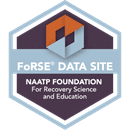Alcoholism and addiction—and very often, the concurrent mental and emotional health issues that accompany the disease—are not short-term problems. Alcoholism and addiction are a lifelong disease. There is no permanent cure, but there is an incredibly effective solution in the form of the 12-Steps. However, this program of recovery must be participated in daily, for as long as the individual aims to remain in recovery from their disease. Ceasing to participate in the solution invariably precedes relapse back into the disease. If the sufferer is lucky and lives to try again, they can almost always return to the solution and begin recovery again.
Like any treatment for any disease, it is best if we can avoid any detours altogether. Given the elements that make alcoholism and addiction so devastating — the physical allergy, mental obsession, and spiritual malady — it can be difficult to avoid relapse entirely. Luckily, even if someone is a chronic relapser, the 12-Step program can very often end the cycle of relapse and begin long-term recovery, as long as it is incorporated as a way of life. Some of the key differences in approach have been identified over the years. At Jaywalker Lodge, we focus on integrating those fine details into our program of care.
The Jaywalker Difference
Proper and personal education on the 1st-Step is a priority at Jaywalker Lodge — what it means for all of us, and each of us specifically, and what it means for our recovery. There is also the incorporation of an active recovery community into the Jaywalker Lodge program. This uniquely allows us to build a sense of community into and around all those who seek recovery with us, teaching them so much beyond a standard stay in a facility. We are also strong proponents of individualized and personalized therapies. There is no one methodology or discipline we prefer, but upon getting to truly know the men who come to us, we are staffed in such a way to be able to employ the methods and style that will work best for them specifically.
The only one-size-fits-all recovery solution is the 12-Steps. We do practice group therapy, with universally applicable methods, but we also engage each individual personally with specialized and fitting therapies. It is incredibly common for most alcoholics and addicts to experience at least some kind of mental or emotional illness. Whether these concurrent conditions are temporary or permanent differs from person to person — that’s a big part of why a personalized approach is necessary. Beyond that, different treatments are effective for different people. We are all unique, and so must be our recovery and treatment, beyond the 12-Steps that work for us all.
Protecting Mental Health
Just as it is common for mental and/or emotional illness to accompany alcoholism and addiction, some people who are firmly in their recovery experience a significant decrease or cessation of their mental or emotional illness symptoms. This is where it gets complicated. There is no real way to know for some time after recovery has taken hold if the alcoholism and addiction were the cause of the mental or emotional illness, or if they are the overlying disease that resulted from the underlying cause. Either way, the 12-Steps can and will treat alcoholism and addiction. They are also helpful in lessening symptoms of concurrent diseases, but the relationships are not always clear. Some people see a major decrease in mental and emotional health issues in early sobriety, while others see an increase in symptoms. Some have their symptoms return, while others never do. Some develop mental or emotional health issues due to life events well into their sobriety.
Care That Is Unique to You
This is why establishing a personal, uniquely individualized continuum of care is so important. Alcoholics and addicts who successfully engage in the 12-Step program of recovery have a beautiful, effective solution to their disease. But just because they are active in recovery does not mean they stop being people. Some people require lifelong participation with a therapist, and some require medicine. Only active and constant participation in the 12-Step program for a long period of time will reveal what each individual case is.
It is never a bad idea for any human being to engage in therapy sessions. Regular visits with a therapist, combined with regular participation in 12-Step work with a sponsor and a recovery community, are typically the best way to discover what is the right course for healing and treatment for each person. It takes time to get all the pieces working together properly, but 12-Step programs and therapy provide pretty solid information-producing foundations across the board.
Continuity of care will look different from person to person, but it is something that would be irresponsible and potentially dangerous if we failed to recommend it for all. It is part of what keeps the people who leave Jaywalker Lodge visiting us and becoming part of our alumni recovery community as living success stories. We firmly entrench them in the 12-Step lifestyle and in an active recovery community, and we immerse them in both group and personalized therapy for the duration. If what we do at Jaywalker Lodge works — and it surely does — then we see no reason why the effective methods should change once they leave. Continuity of care should resemble what initially helped the individual recover.
Alcoholism and addiction are a lifelong disease, but they need not rob the sufferer of life. There is a solution that works. The 12-Step program of recovery is designed to produce the necessary psychic change and vital spiritual experience that are foundations for lasting recovery. Freedom from alcoholism and addiction is possible if the proper solutions and treatments are applied on a personal and meaningful level. The 12-Steps may not be entirely all that is needed to achieve maximum healing and health for each individual. Responsible continuity of care helps ensure that any concurrent diseases, especially mental health issues, are treated effectively. Recovery is about positive growth in all aspects of life. At Jaywalker Lodge, our unique blend of methods and our core values make a difference for many who have struggled to maintain their sobriety. If you are ready to begin your recovery, call Jaywalker Lodge today at (866) 529-9255.

As Chief Executive Officer Bill provides leadership and manage all day-to-day operations of Jaywalker Lodge, an extended care residential addiction treatment program for adult men.




